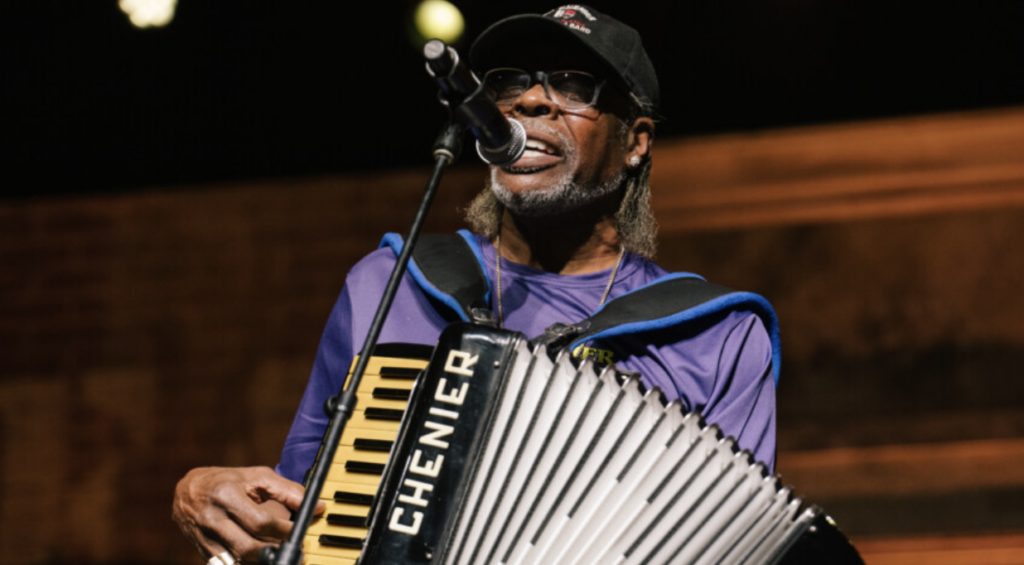Merry Blue Christmas

The man is alone on Christmas Eve. A window glows in the house across the street. He can hear somebody else’s loved ones rushing home through the icy snow. His ex took most of their ornaments when she left; still, he has hung the ones that remain because they remind him of his old life. But holding on to those memories just makes a miserable night longer.
Kansas City singer Mike Ireland tells this story in a quavering tenor, accompanied by an innocent melody pinged out on a xylophone, its notes sparkling like lights on a tree. It’s Christmas, what is supposed to be the happiest time of the year, but as he remembers pledging his love beneath that long-ago tree, here’s what he’s singing: Our first kiss to our first year/And our first lies to our first angry tears, wept/As the neighborhood slept.
Ireland’s “Christmas Past,” from his 1998 album Learning How to Live, isn’t exactly the kind of stuff you hear on KUDL this time of year. But if you can stand to listen to it, the song is exquisitely gorgeous and true — a testament to what this season really feels like for more people than Hallmark would have us believe.
So for all of you out there, here’s an alternative season’s greeting, courtesy of some Kansas City musicians.
In “Christmas in Missouri” by Howard Iceberg and the Titanics, a troubled character walks down lonely streets in St. Louis. Like Ireland, all he has are memories of happier, noisier holidays.
An especially bright star shines down on the intersection of Delmar and Eighth.
I could use a few words from those wise men tonight/To help me with what’s left of my faith, Iceberg sings.
Iceberg, a wild-haired folksinger who works as an immigration lawyer, says he wrote the song because he wanted to capture a feeling.
“You know, my background is Jewish — I didn’t grow up celebrating Christmas. But I’ve also written several songs about Texas, and I’ve never been to Texas, either. I wanted to do a Christmas song, my version of a melancholy song.”
Iceberg celebrates Christmas every year with his partner, Kathy Kirby, and her family. “Our niece and nephews, who we’re very close to, are growing up now, and I had it in mind that they don’t run around and scream and tear open the presents like they did in the old days. I tried to match what it would be like to be an empty nester, looking back at the days of the bright, laughing Christmases.”
Don’t be in such a hurry, he reminds himself in the chorus. It’s over before you know it. He could be referring to Christmas, could be referring to life.
That’s what Tom Hall’s singing about on a version of “Silent Night” rewritten to reflect the tenuousness of life in a violent Kansas City. Silent night, holy night/Shots ring out, flashing lights, Hall begins, Each day measured in human life/Suffer the children to pay the price/We live our days in fear/We live our days in fear. A gospel choir from Swope Parkway United Christian Church comes in for a chorus — Let’s join together as one/That the light of love will shine — in an arrangement by Joe Miquelon (then a sideman for Ida McBeth, now with the Elders).
The lyrics are by the Pilgrim Chapel’s Rev. Roger Coleman. “I started writing it as a protest of the war in Iraq, and there was so much violence that year in Kansas City,” Coleman recalls of the 2004 composition. The CD was well-done, he says, “But I couldn’t get anyone’s attention.”
[page]
At least Chuck Haddix gave it some attention on last year’s Christmas edition of The Fish Fry on KCUR 89.3. Last year’s Fish Fry, archived at at kcur.org, is worth listening to just for “Silent the Night” and for the gently swinging solos in Jay McShann’s instrumental “Hootie’s KC Christmas Prayer.”
And for Julia Lee’s 1947 song “Christmas Spirits.”
Christmas spirits all around me, sings Lee, a bawdy godmother of our city’s jazz and blues heyday, but I just don’t feel a thing. The line’s so true that, for the first verse, she just sings it again.
The recording (by Julia Lee and her Boyfriends, on the album Kansas City’s First Lady of the Blues) starts with musicians warming up. Someone plays a slow, loose “Jingle Bells” riff on the piano, a sax player splurts out some notes, and men joke raucously in the background. But things get quiet, and the music’s soft when Lee starts singing. I’m afraid old Santa won’t be coming/’Cause what I want most, he can’t bring.
She’s talking about a man when she says she wants what Santa can’t give her, but she might as well be talking about all of those other hopes that turn out to be Christmas lies — joy to the world, peace on Earth, goodwill toward men. Hell, for a lot of people, just paying that subprime mortgage or getting health insurance would be a Christmas miracle.
After a couple of Lee’s verses, Vic Dickenson comes in for a trombone solo that sounds sorrowful and slurry, like the mumblings of the last person at a party.
By the end, Lee has grown desperate: Santa, Santa, Santy/You’re all through work on Christmas Day/I could go for your long whiskers/You might drop by and plan to stay.
“A lot of people get the blues at Christmastime. That manifests itself in the number of blues and R&B Christmas songs,” notes Haddix, director of the University of Missouri-Kansas City’s Marr Sound Archives and co-author of Kansas City Jazz: From Ragtime to Bebop — A History. He’s been hosting The Fish Fry since 1985, and his annual Christmas show may be the city’s best holiday tradition.
Haddix does four hours of Christmas music on the last Saturday before Christmas Eve. “It’s ironic because I’m not a Christian, but I love the music,” he says. “It’s very emotional music. These are universal themes that speak to us: You don’t have enough money. Your woman’s left you. Because of our expectations of that time of year, these feelings are amplified. Christmas is a time of giving, but if you’re broke, you can’t give. It’s a time of love, but if you got no woman, you got no love.”
Starting in the ’40s, Haddix says, many R&B artists would try to write the song of the season.
And often, as happens in Lee’s song, women think of Santa as an unfaithful lover. “She wants him to stay a little longer,” Haddix explains. “That whole motif, with her having sexual feelings toward Santa Claus, occurs throughout the music. It’s a phenomenon that’s particular to the blues because most of the pop artists sing Christmas standards. These blues artists expressing their frustration around Christmastime — they create original songs.”
There’s a reason Santa turns out to be a frustrating man.
“In that type of music,” Haddix explains, “you don’t mix the secular and the sacred. It’s a secular expression of the blues, so Santa becomes the central figure instead of Jesus.”
Which makes sense. After all, you can’t blame a little baby for the fact that, 2,000 years later, we’re still waiting for the promises of his birth to come true.
[page]
The Christmas edition of The Fish Fry airs from 8 p.m. to midnight on Saturday, December 22, on KCUR 89.3.




